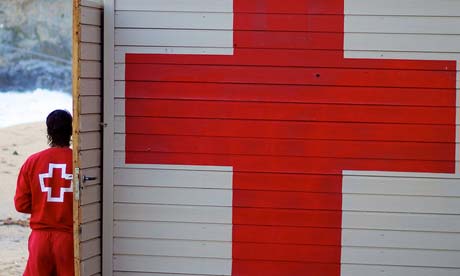
Getting off the beaten track is wonderful, but what happens when you get ill? How to look after yourself in the middle of nowhere...
If you’re going to be miles from medical help, you need to be extra careful with your preparations to ensure you stay healthy while you’re away.
First you need to know your own body and the kinds of treatments that have helped in the past. Are you allergic to any medications? If, for example, you have experienced an itchy rash on taking penicillin, do you know what other antibiotics you should avoid? And if aspirin makes you wheeze, are you alright taking related anti-inflammatory medicines such as ibuprofen? Do you know simple remedies for coughs and colds, and can you judge when you’ll need to find a doctor?
Knowing a little about the local standards of health care at your destination can be life-saving. You need to know whether competent medical help is available, and if so whether it’s available only in the capital city or via a local system of rural clinics throughout the country.
Those venturing into seriously remote regions would be safer travelling with at least one companion, and both of you should have first-aid training. A St John Ambulance course is a good start, but there are also intensive residential outdoor courses.
All adventurers need a small medical kit. There is something to be said for considering a neat off-the-shelf zip-up pack, but whatever you buy, you’ll need to personalise it.
Most pre-packaged ones will not include essential Steri-Strips – the miniature pieces of tape that are used to pull wounds together, avoiding the need for stitches and with them the risk of hepatitis B or HIV infection from inadequately sterilised clinic kit. I’d also pack paracetamol and throat lozenges, because coughs and sore throats are common even in the tropics.
A digital thermometer is useful for distinguishing between being a bit off-colour and having typhoid, malaria or bacillary dysentery. You’ll need to know what the numbers on the thermometer mean: a raised temperature that remains below 38°C is not likely to signal any significant illness, whereas 39°C or over means you need diagnosis and treatment.
Those expecting to need to treat themselves may want to pack courses of antibiotics. These are prescription-only, so you will need to consult either your GP (who will probably make a private prescription charge) or a travel clinic with an in-house doctor.
If you carry antibiotics with you, you need to know how to use them. Misdiagnosing and thus mistreating an illness could make you think you are safe and getting better, when in fact the illness is progressing – so always try to find a competent clinician.
Be aware too that pain has a useful function: it stops you doing further damage. If you are injured, don’t be tempted to just swallow a handful of strong painkillers and carry on. You may pay later if you do.
One way of getting reliable medical advice is to set up a link with a doctor at home, allowing you to consult them by email. Although not generally available on the NHS, private clinics may offer such a service to those who register before leaving the UK.
Alternatively, most good travel health insurance policies are linked into a medical assistance agency, whose advisors can provide plenty of information about clinical facilities at your destination. There are also many courses for those whose travels will take them outside the care of a trusted doctor.
If you do fall ill in an unknown place, try to find a reliable clinician rather than just strolling into the nearest ‘doctors’ office that has a red cross outside. Your hotel, embassy or expatriates will have recommendations as well as opinions on who to avoid.
If you have to see a local practitioner, go with an interpreter and resist injections and intravenous infusions (‘drips’). They are seldom needed and carry the risk of unnecessary infection.
Unfortunately there are incidences of travellers effectively being held hostage (on a drip) in order to collect fees from the patient or (preferably) their insurers. I know of cases of such ‘ball-and-chain’ care even as close to home as Spain. This is another good reason for being properly insured: it is in the insurers’ interests to send out rescue missions to bring hospitalised clients home.